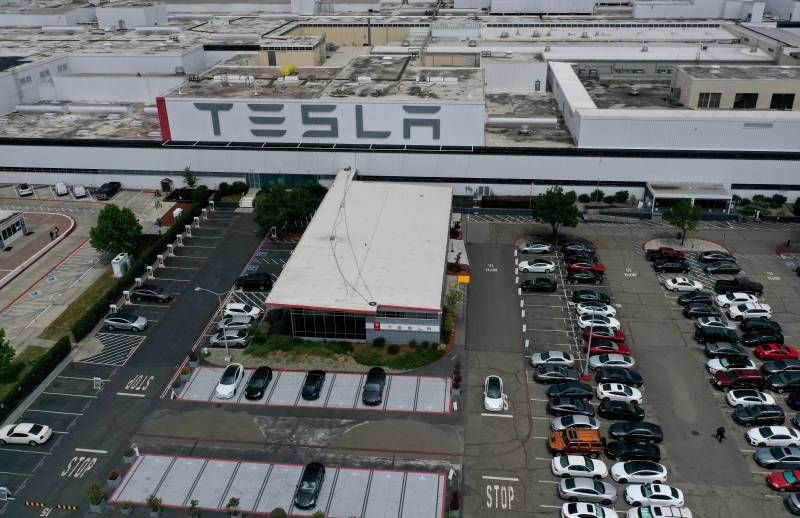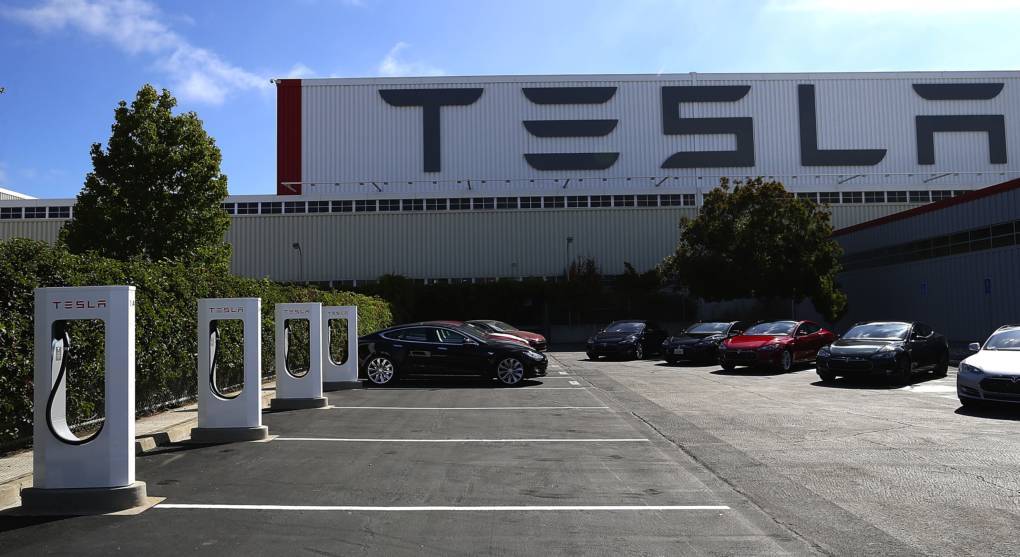It wasn’t immediately clear whether Tesla would appeal the decision. The company’s vice president of human resources, Valerie Capers Workman, responded to the verdict through a blog post published on Monday.
"We strongly believe that [the facts of the case] don’t justify the verdict reached by the jury," Capers Workman wrote, and added, "We do recognize that in 2015 and 2016 we were not perfect."
Tesla previously denied any knowledge of the alleged racist conduct at the plant, which has about 10,000 workers.
In the post, Capers Workman also mentions that Diaz was a contractor who worked for an outside employer and therefore was never a Tesla employee.
But Oppenheimer, the attorney, told KQED that employers should be providing a safe workplace to anyone who supplies labor, whether they are employees or contractors.
"[Contractors] are your responsibility," she said, referring to employers. "It's your environment that you have to address."
She hopes this verdict will encourage more workers to speak up about workplace discrimination and, in turn, push employers to invest more resources in preventing these types of situations.
"It's not rocket science, Elon Musk. It's really caring about your employees and enforcing laws to protect them," Oppenheimer said.

